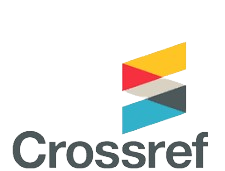De la teoría y la aplicación lingüística a la construcción de la dignidad y los derechos humanos
DOI:
https://doi.org/10.5016/ridh.v8i2.30Palavras-chave:
Lingüística, Sociolingüística, Lingüística educativa, Dignidad, Derechos humanos, PandemiaResumo
La ciencia lingüística no dejó una marca particular, fácilmente identificable en el constructo de dignidad humana consagrado en la Declaración Universal de los Derechos Humanos. Su contribución fue más bien indirecta, inspiradora y principista, pero significativa porque hizo un doble aporte. Primero, se sumó a otras fuentes que respaldaron el discurso de los derechos humanos en la idea de dignidad como rasgo distintivo de los seres humanos. Segundo, contribuyó al razonamiento dialéctico que ese discurso construyó entre semejanza y diferencias para articular las dimensiones de la persona: miembro de la especie, integrante de una sociedad, e individuo autónomo.
Sobre lo primero, la Lingüística y la Sociolingüística ofrecieron conocimientos científicos sobre las particularidades de la especie humana que hacen a sus miembros seres dignos de reconocimiento y protección. Enfatizaron nuestra unidad como especie singular (homo loquens, hombre que habla) a la vez que distinguieron nuestras diferencias como individuos y grupos sociales hablantes de distintas lenguas. Así, el estudio científico del lenguaje y las lenguas permitió conocer mejor a sus hablantes, sus facultades y creaciones, y a caracterizarlos como individuos libres, iguales y también cooperativos, en cuanto constructores de sociedades.
Sobre lo segundo, estas disciplinas ejemplificaron un discurso elaborado que reconoció nuestra semejanza esencial como familia humana –la facultad del lenguaje— en oposición y a la vez en complementación con nuestras diferencias evidentes como sociedades e individuos hablantes –las distintas lenguas naturales del planeta y las distintas variedades de cada lengua natural—. Articularon los dos reconocimientos en un discurso dialéctico e integrador, que no negó las tensiones entre ellos, pero tampoco las presentó como irresolubles. Las explicó y propuso políticas superadoras, sociales y educativas. De tal forma impulsaron su desarrollo como ciencias y también el discurso de los derechos humanos.
From Linguistic Theory and ApplicationTowards the Construction of Dignity and Human Rights
Linguistic science did not leave a particular, easily detectable mark in the human dignity construct acknowledged by the Universal Declaration of Human Rights. Its contribution was mainly indirect, inspirational, and of principle but significant since it made a double contribution. First, it added to other sources supporting the human rights discourse in the notion of dignity as a distinctive feature of human beings. Second, it contributed to the dialectical reasoning the human rights discourse developed between similarity and differences in order to articulate the various dimensions of a person: member of the human species, participant of a society, and autonomous individual.
About the first, Linguistics and Sociolinguistics put forward scientific knowledge about the particularities of the human species that make its members creatures deserving recognition and protection. They emphasized our unity as a singular species (homo loquens, speaking man) while at the same time distinguished our differences as individuals and social groups speaking different languages. Therefore, the scientific study of language and natural languages allowed a better understanding of their speakers, their faculties and creations, and their portrayal as individuals who are free, equal and also cooperative as society builders.
About the second, these scientific disciplines displayed a complex discourse recognizing our essential similarity as members of the human family –the faculty of language— in contrast with our visible differences as societies and speakers –the different world languages, and the different varieties within each language. Both recognitions were articulated in an including and dialectic discourse, which neither denied the tensions between them nor presented them as unsolvable. Such a discourse explained the tensions while proposing comprehensive social and educational policies to deal with them. In such a way these sciences further their development, and the development of the human rights discourse.
Keywords: Linguistics. Sociolinguistics. Educational Linguistics. Dignity. Human Rights. Pandemic
Downloads
Downloads
Publicado
Como Citar
Edição
Seção
Licença
Copyright (c) 2021 Ana María Rodino

Este trabalho está licenciado sob uma licença Creative Commons Attribution-NoDerivatives 4.0 International License.
Autores mantêm os direitos autorais e concedem à revista o direito de primeira publicação, com o trabalho simultaneamente licenciado sob a Creative Commons Attribution License que, permitindo o compartilhamento do trabalho com reconhecimento da autoria do trabalho e publicação inicial nesta revista.
Autores têm autorização para assumir contratos adicionais separadamente, para distribuição não-exclusiva da versão do trabalho publicada nesta revista (ex.: publicar em repositório institucional ou como capítulo de livro), com reconhecimento de autoria e publicação inicial nesta revista.





